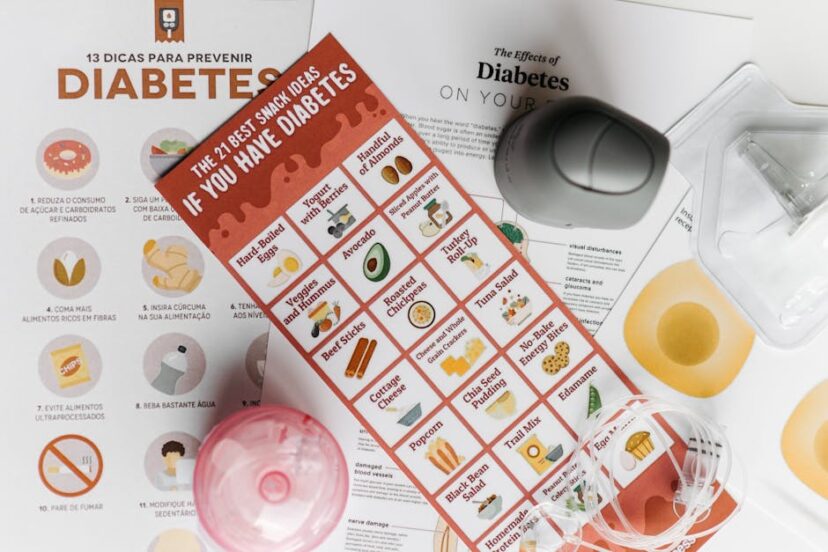Gestational Diabetes Meal Planning: Save Time and Eat Well
Gestational Diabetes Meal Planning: Save Time and Eat Well
Gestational diabetes is a condition that affects pregnant women, characterized by high blood sugar levels. This condition can be managed effectively with the right meal planning. In this comprehensive guide, we will explore how to save time and eat well while managing gestational diabetes. We’ll provide actionable tips, nutritional advice, and a meal plan to guide you through this journey.
Understanding Gestational Diabetes
Gestational diabetes occurs when the body cannot produce enough insulin to handle increased blood sugar levels during pregnancy. According to the Centers for Disease Control and Prevention (CDC), gestational diabetes affects about 2% to 10% of pregnancies in the United States annually.
The condition is temporary and usually resolves after childbirth. However, it is crucial to manage it effectively to reduce risks for both mother and baby. Proper meal planning plays a vital role in this management.
The Importance of Meal Planning for Gestational Diabetes
Meal planning is essential in managing gestational diabetes as it helps maintain stable blood sugar levels. It ensures that you consume a balanced diet rich in nutrients and low in sugar and unhealthy fats. Moreover, it saves time and reduces stress by pre-determining your meals.
Here are some benefits of meal planning:
- Consistent Blood Sugar Levels: Regular meals help prevent spikes and drops in blood sugar levels.
- Nutrient-Rich Diet: Ensures you and your baby receive the necessary nutrients.
- Time-Saving: Reduces daily decision-making and grocery trips.
- Cost-Effective: Helps avoid impulse purchases and food waste.
Steps to Effective Meal Planning
1. Consult with a Healthcare Professional
Before embarking on any meal plan, consult with your healthcare provider or a registered dietitian. They can offer personalized advice and help tailor a plan that suits your specific needs and lifestyle.
2. Understand Your Nutritional Needs
Pregnancy increases nutritional demands. A balanced diet for gestational diabetes should include:
- Complex Carbohydrates: Whole grains, legumes, and vegetables.
- Lean Proteins: Chicken, fish, tofu, and beans.
- Healthy Fats: Avocados, nuts, and olive oil.
- Fiber: Fruits, vegetables, and whole grains to aid digestion and maintain satiety.
3. Create a Weekly Meal Plan
Draft a meal plan for the week. Incorporate a variety of foods to ensure a balanced intake of nutrients. Aim for three small meals and two to three snacks per day.
4. Prepare a Shopping List
Once your meal plan is set, create a shopping list. Stick to the list to avoid unnecessary purchases and stay within budget. Focus on fresh, whole foods.
5. Meal Prep in Advance
Set aside time once or twice a week to prepare meals in advance. Chop vegetables, cook grains, and portion out snacks. This preparation saves time on busy days and helps you stick to your meal plan.
Sample Meal Plan for Gestational Diabetes
Here’s a sample meal plan to help you get started:
Breakfast
Oatmeal with Berries: Cooked oats topped with fresh berries and a sprinkle of nuts.
Mid-Morning Snack
Greek Yogurt and Almonds: A cup of Greek yogurt with a handful of almonds.
Lunch
Grilled Chicken Salad: Mixed greens with grilled chicken, cherry tomatoes, cucumbers, and a vinaigrette dressing.
Afternoon Snack
Hummus and Veggies: Carrot and celery sticks dipped in hummus.
Dinner
Quinoa and Vegetables: Quinoa cooked with sautéed vegetables and a side of grilled salmon.
Evening Snack
Apple Slices with Peanut Butter: Sliced apple with a tablespoon of peanut butter.
Incorporating Physical Activity
Alongside meal planning, incorporating physical activity can help manage gestational diabetes. Aim for at least 30 minutes of moderate exercise daily, such as walking, swimming, or prenatal yoga. Always consult your healthcare provider before starting any exercise regimen.
Conclusion
Managing gestational diabetes effectively involves careful meal planning and lifestyle adjustments. By following the steps outlined in this guide, you can maintain stable blood sugar levels, enjoy a nutritious diet, and ensure the well-being of you and your baby. Remember to consult with healthcare professionals and tailor your meal plan to suit your individual needs. With the right approach, you can save time and eat well throughout your pregnancy.
For more information and personalized advice, consider reaching out to a registered dietitian or your healthcare provider.


